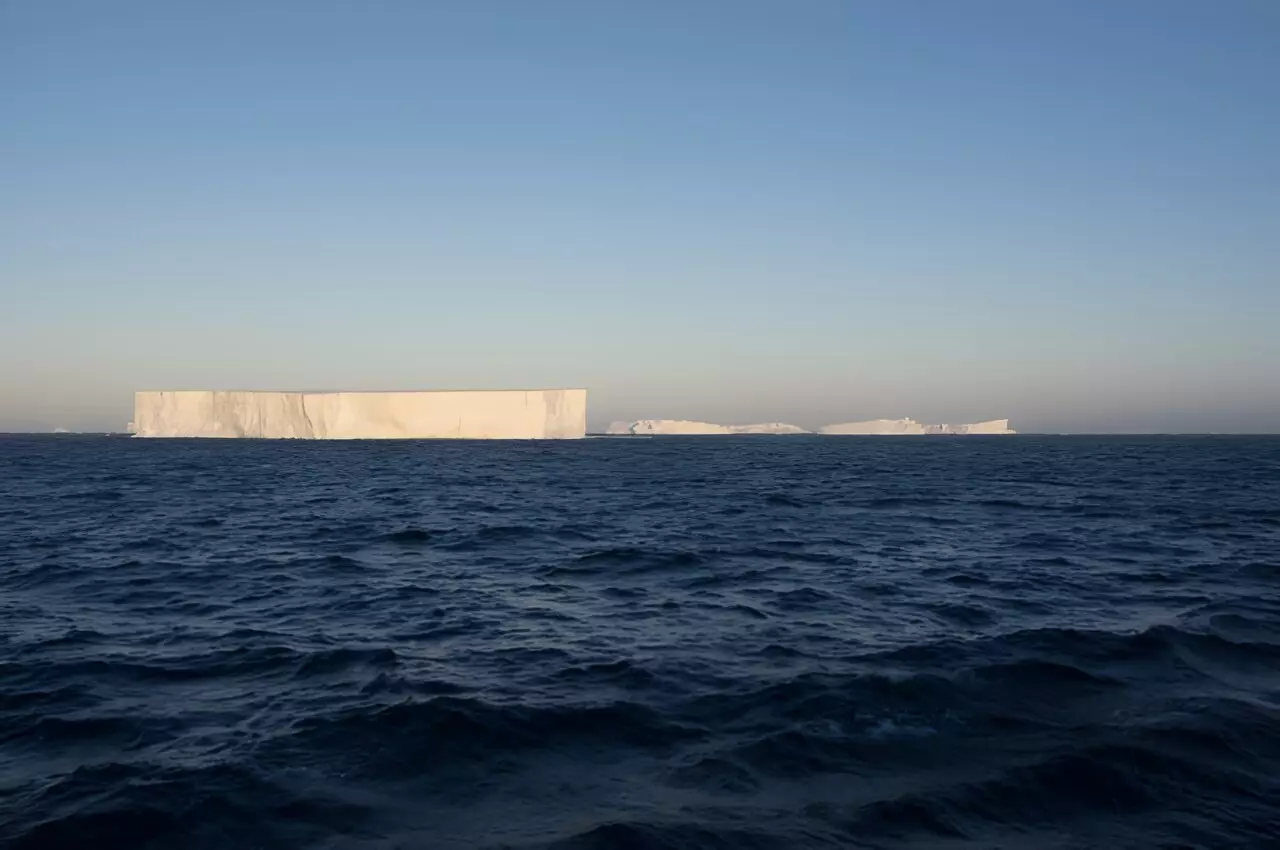The collapse of giant iceberg A-68A in the sub-Antarctic has raised concerns among scientists regarding the potential effects on ocean ecosystems. This event provided a unique opportunity for researchers to gather in-situ ocean measurements and study the impact of iceberg melting on the environment. The findings of this study, published in the journal Progress in Oceanography, shed light on the intricate interactions between icebergs, ocean currents, and marine ecosystems.
Iceberg A-68A calved off the Larsen Ice Shelf on the Antarctic Peninsula in 2017 and embarked on a 4000 km journey across the South Ocean towards the sub-Antarctic island of South Georgia. The iceberg reached South Georgia in late 2020, where it broke up and melted over a three-month period until February 2021. This journey provided scientists with a rare opportunity to observe the impact of iceberg melting on the surrounding ocean and ecosystem.
In February 2021, a team from the British Antarctic Survey (BAS) and the National Oceanography Centre (NOC) diverted a research ship to South Georgia to study the effects of A-68A’s melting. Icebergs are common in the region, with a known route referred to as “iceberg alley.” However, very few icebergs have been studied in detail by scientific expeditions. The team onboard the research ship RRS James Cook spent four days collecting valuable data on the physical, chemical, and biological changes in the ocean due to iceberg melting.
The melting of iceberg A-68A led to a restructuring of water layers within the ocean, with meltwater at the surface pushing down underlying layers. This redistribution of nutrients and micronutrients had a significant impact on phytoplankton populations. Phytoplankton that was trapped within the iceberg’s frozen mass was released into the water as the iceberg melted, leading to rapid growth in numbers. This influx of phytoplankton could have implications for the entire marine food chain at South Georgia.
The size and trajectory of iceberg A-68A raised concerns about its potential impact on the local wildlife at South Georgia. Researchers were particularly worried about nesting birds and seals trying to wean their pups in the region. The presence of giant icebergs in warmer seas can disrupt marine conservation areas and alter the delicate balance of ecosystems. Understanding the mechanisms of iceberg melting is crucial for predicting and mitigating future impacts on marine environments.
Climate models predict that icebergs may calve more frequently from Antarctic ice sheets in the future due to warmer ocean temperatures. The findings from the study of iceberg A-68A provide valuable insights into the potential effects of increased iceberg calving on ocean ecosystems. By studying the behavior of giant icebergs like A-68A, researchers can improve their understanding of these complex processes and better prepare for future environmental changes.
The collapse of iceberg A-68A in the sub-Antarctic region has contributed valuable data to the scientific community regarding the interactions between icebergs, ocean currents, and marine ecosystems. This study highlights the importance of monitoring and studying the impact of iceberg melting on the environment to better understand and protect fragile marine ecosystems in a changing climate.


Leave a Reply